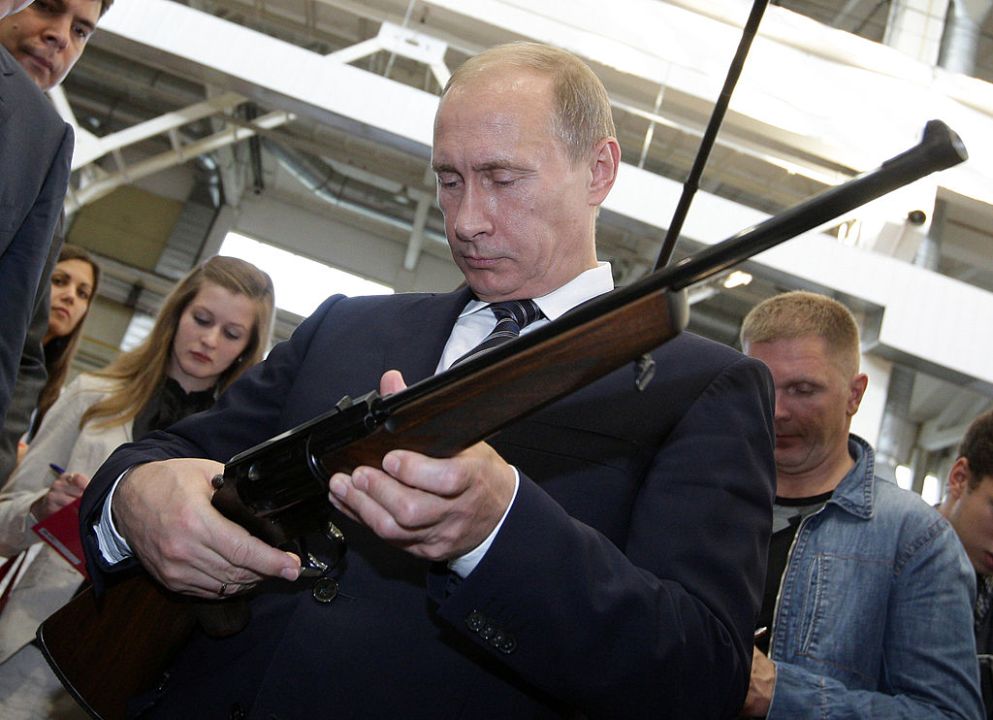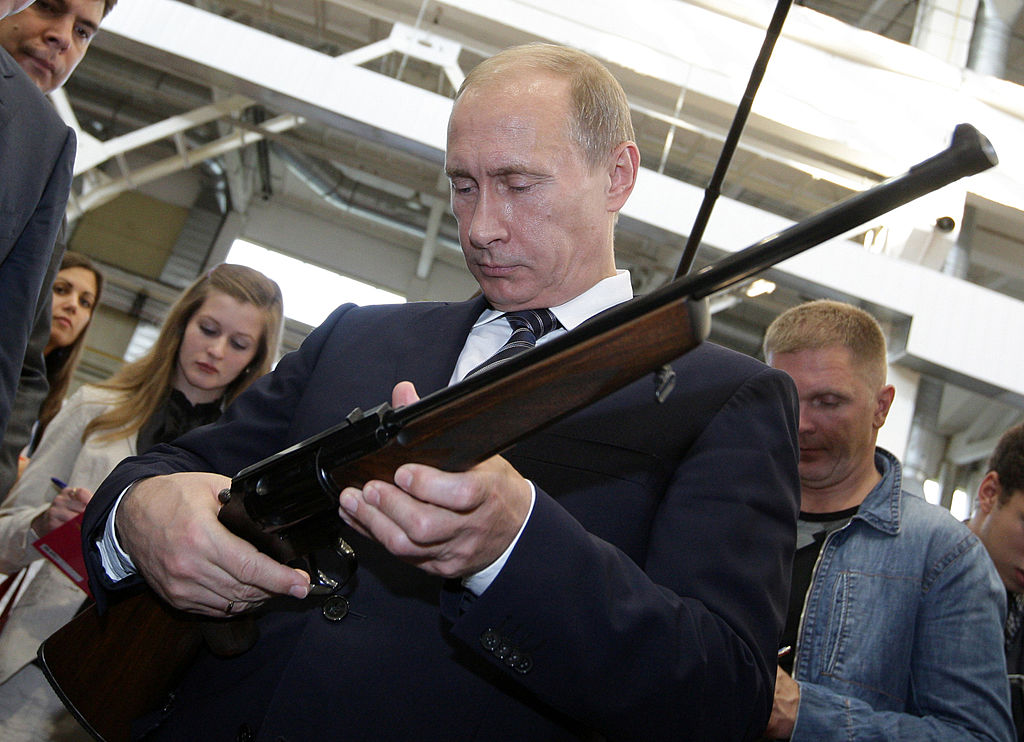The last time Europe fought a major war, there was no shortage of planning. We knew what peace meant. Winston Churchill and Franklin Roosevelt issued their Atlantic Charter in August 1941, before the Allied victory was anywhere close. This was followed by more meetings and conferences, including in Tehran in 1943 and later at Yalta, in Crimea, in 1945. The fighting never stopped, but there was a lot of thinking about the future of Germany, Europe and the new world order.
This sort of thinking is less evident today with Ukraine. Maybe it’s because Russia’s war in Ukraine, as bad as it is, isn’t yet a world war. It is happening some place out there, in ruined towns that few have ever heard of, and fewer still really care about. People are dying, but they are not us. The West keeps increasing its military aid to Ukraine, and we rightly cheer at its every victory, but there is a disconnect between this effort and our broader thinking about the post-war world. We don’t have a clear idea of what peace looks like.
The reason we have failed to think about the post-war world should be clear to any observer of international politics. Russia is a nuclear power that can annihilate its enemies, even if that means the complete end of normal life on earth, and Russia’s own destruction. It is difficult to plan for Russia’s defeat because the outcome where the Fuhrer, in his bunker, ends it all, is improbable. If Hitler had a nuclear briefcase, would he not have used it before killing himself?
Instead, we indulge in fantasies about a coup d’état in Russia. In any moment, we’re told, Putin’s generals might throw him out. The obedient orcs of Mordor will rebel. There might even be a civil war, as historian Timothy Snyder helpfully prophesised, with different parts of the Putinist establishment fighting it out among themselves while a happily liberated Ukraine rebuilds and joins the West. These mental acrobatics help us plot the uncertain road from Russia’s defeat in Ukraine, which all agree is a good idea, to Russia’s final defeat. It keeps the war simple.
The biggest unknown, though, is Crimea. Ukraine has made it clear enough: liberation of Crimea, as well as the former self-proclaimed republics of DNR and LNR in the Donbas, remain its war aims. The fate of Russia, Europe, and the world order are philosophical issues that fade in importance before this very concrete, very practical agenda. Ukraine expects the West to support these ambitions.
The West may get lucky, and Putin might capitulate. But luck is a poor basis for planning.
In this best-case scenario, Putin, facing defeat, will simply vacate Ukraine and never dare to return. That would be the end of the war, but still at best a partial victory for the West and for Ukraine, since Putin would have escaped punishment. Russia would not have been vanquished like Germany was in 1945, because there is no scope in our world for the unconditional surrender of nuclear powers. Putin would still be around, resentful and dangerous, and even if he left the scene, Russia’s aggressive nationalism would not dissipate and could yet prove a menace to Europe.
Even the best-case scenario rests on a key assumption: that Putin thinks his regime will survive a defeat in Ukraine. Yet, the Russian President, an avid student of history, will know only too well that defeat in foreign wars can lead to unrest and even revolution at home. Russia’s defeat in the Russo-Japanese War (1904-05) very nearly toppled the monarchy, while Russia’s failures in world war one handsomely contributed to the chaos and revolution of 1917. Gorbachev’s ‘loss’ of East Germany in 1990 deepened his unpopularity with the Soviet military, helping precipitate the attempted coup of August 1991. So, Putin is not wrong to deem this war existential – if not for Russia, then certainly for his regime, and for him personally.
If Putin thinks that he cannot survive the humiliating loss of Crimea, why would he not opt for the last resort, the proverbial Plan B, and go nuclear? The West may get lucky, and Putin might capitulate. But luck is a poor basis for planning. The safest policy, perhaps, then, is to assume that Russia will launch a nuclear attack, at least in Ukraine, before we see the back of its forces in Crimea and the Donbas.
But if we assume that Russia will, in the end, nuke Ukraine, then we truly enter an unknown realm. Will the initial use of nuclear weapons be limited to Ukraine? Will the conflict escalate even further afterwards? And what sort of peace comes in the wake of this sort of catastrophe? Only God can plan for a world after a nuclear war.
This is why it’s difficult to play the long game like Churchill, Roosevelt and Stalin did in Crimea in 1945. It’s easier to endorse Ukraine’s war objectives, and help Kyiv achieve them, knowing all the while that these objectives are yet nowhere near realisation. The difficult choices can be safely postponed until that happy day when Ukraine reclaims all territory lost to Russia since February 24.
In the meantime, we can indulge in the comforting thought that the fact that Putin has not yet used nuclear weapons in Ukraine means that he never will. Such positive thinking, though not based on any evidence, offers a way out of policy paralysis, which might result from overthinking the nuclear dilemma. It allows us to remain convinced that this war can and will be won by Ukraine and the collective West.
Planning for peace requires a degree of mental clarity. During one of their private meetings at the Yalta conference, Roosevelt told Stalin just how shocked he was by the ‘meaningless and ruthless destruction’ inflicted by the Germans on Crimea. It made him feel ‘bloodthirsty’ towards the Germans, he said. The war still had three months to run, but the end was clearly near. Germany would pay for all the death and destruction. At Yalta, Stalin wanted the country completely dismembered. Roosevelt and Churchill were less keen on the idea. Still, they could do anything they wanted. Germany lay prostrate.
None of us know, however, how long Russia’s war with Ukraine will last. Months? Years, maybe? No one even knows whether victory, the way it was understood in 1945, is possible. Or something we want. Our idea of peace today is to give Putin the unpalatable choice between the gun and the bomb, while hoping with probably misplaced optimism that at last moment he dejectedly reaches for the gun.








Comments